The Pope’s largest and most participative meeting with the College of Cardinals
Pope with Cardinals to reflect on Curia reform
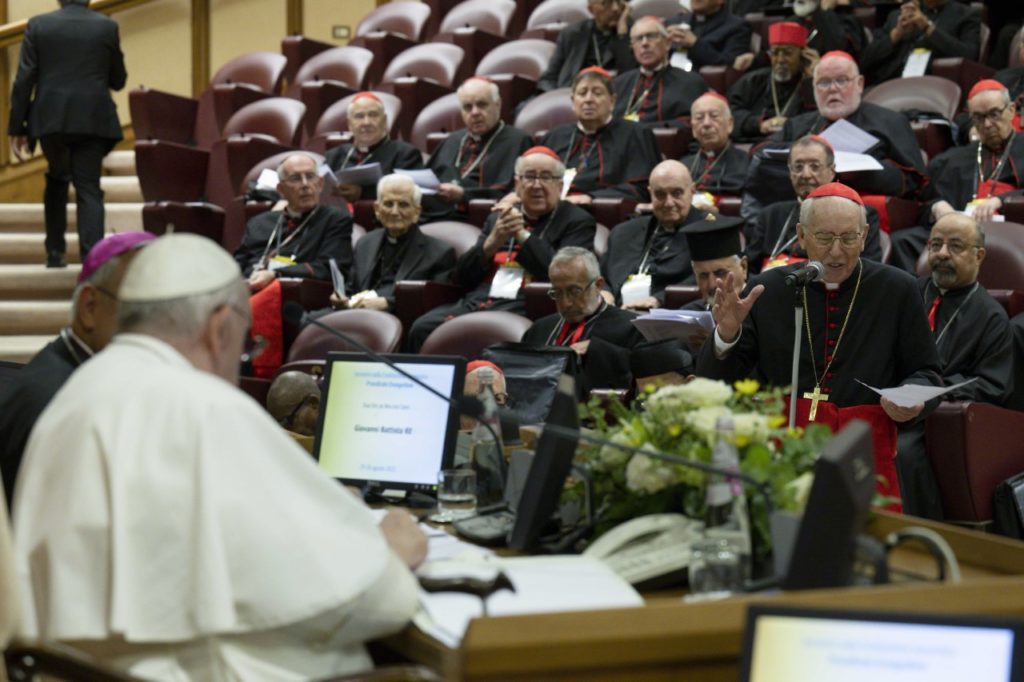
On 29 and 30 August, the meeting behind closed doors in the Aula Nuova of the Synod to discuss aspects of the Praedicate Evangelium, the Apostolic Constitution in force since 5 June.
At the conclusion of the two-day meeting, on Tuesday 30 August at 5.30 p.m., the Pope will celebrate Mass with the new cardinals in St Peter’s Basilica, which Francis was unable to celebrate yesterday as he was visiting L’Aquila.
Cardinal Feroci explained that the cardinals addressed two main themes: that of communion, that is, the witness of mutual love among Christians, and then the question of the difficulty of today’s society to open up to the Gospel message, with a consideration of the means to overcome these difficulties.
For his part, Cardinal Marcello Semeraro, Prefect of the Dicastery for the Causes of Saints, emphasized to Vatican News the great participation of the cardinals at the meeting with an open and intense dialogue, in particular on the missionary perspective outlined in the new Apostolic Constitution and the need to focus the proclamation on the greatest commandment, that of charity.
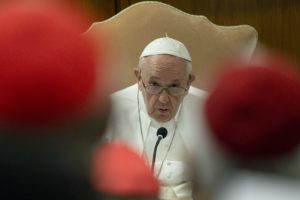
Novelties and indications of the Praedicate Evangelium Above all, the Praedicate Evangelium – as the name itself indicates – gives the Curia a more missionary structure, so that it is increasingly at the service of the particular Churches and evangelization. While focusing on changes in the structure of the dicasteries and offices, the Praedicate Evangelium actually “broadens” the borders of the Curia by creating a direct line with the Bishops’ Conferences and the various dioceses of the five continents.
A bridge between the Curia and the episcopates can make it easier to perceive who is at the service of the Holy Father, at the service of the bishops, and this is a hope for a more fraternal Church, where cultural diversity is listened to, lived and assumed, Steiner said.
There were many topics to reflect on, emphasized the newly appointed Cardinal Arthur Roche, Prefect of the Dicastery for Divine Worship: the collaboration between Curia and episcopates, the presence of the laity in positions of responsibility, ‘missionary work’ and the ‘conversion of the Church’.
The universal vision that has always characterized Pope Francis’s choices for the College, with the representation of countries that have never seen a cardinal in their history (from Tonga to Brunei, from Mongolia to Haiti, from Bangladesh to Laos to Lesotho), has meant that the College is made up of members who are distant both in terms of cultural formation and pastoral sensitivity, and geographical location, which makes it difficult to meet regularly or attend meetings in Rome.
Related

Pope Francis’ Catechesis: The Rich Man. Jesus “Looked at Him with Love”
Exaudi Staff
09 April, 2025
4 min
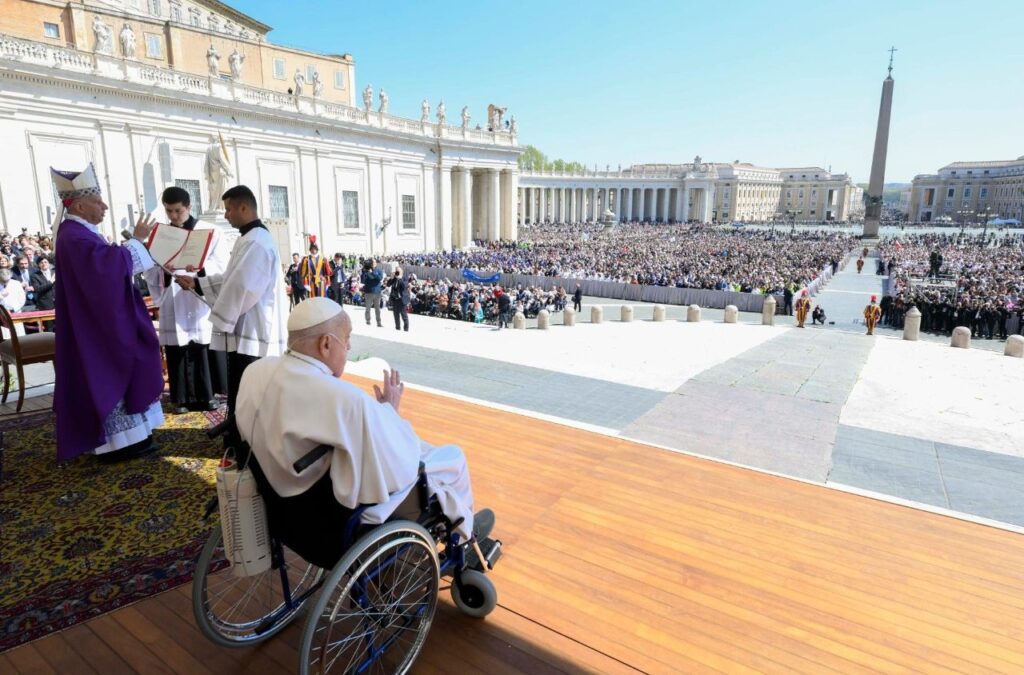
Francis is recovering: progressing progressively
Exaudi Staff
08 April, 2025
2 min
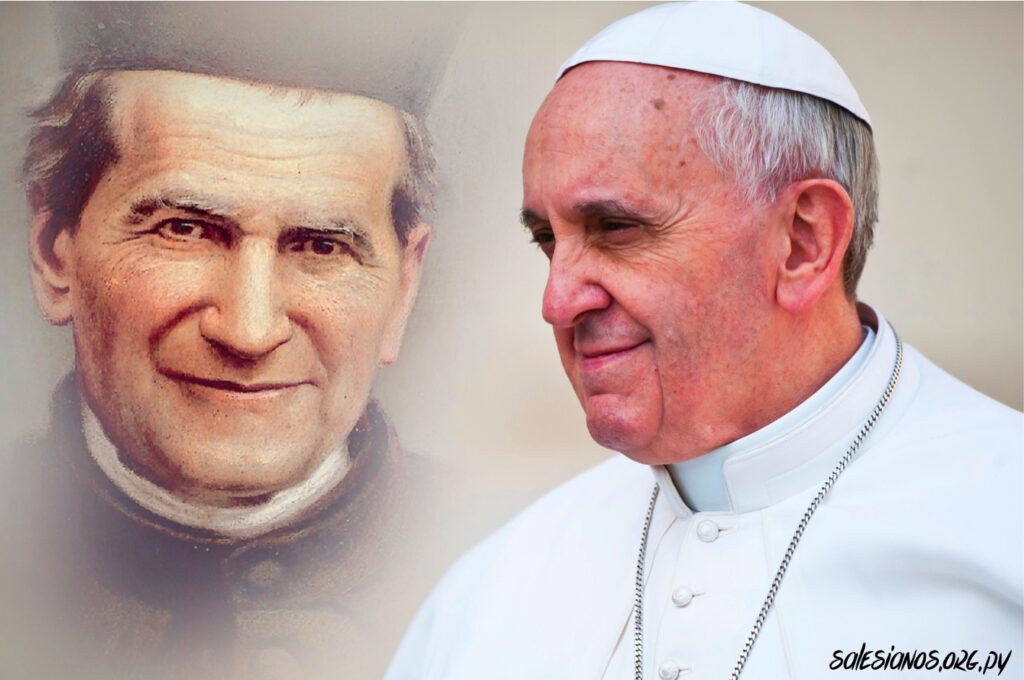
The Pope to the Salesians: “Serve others without holding anything back”
Irene Vargas
07 April, 2025
2 min
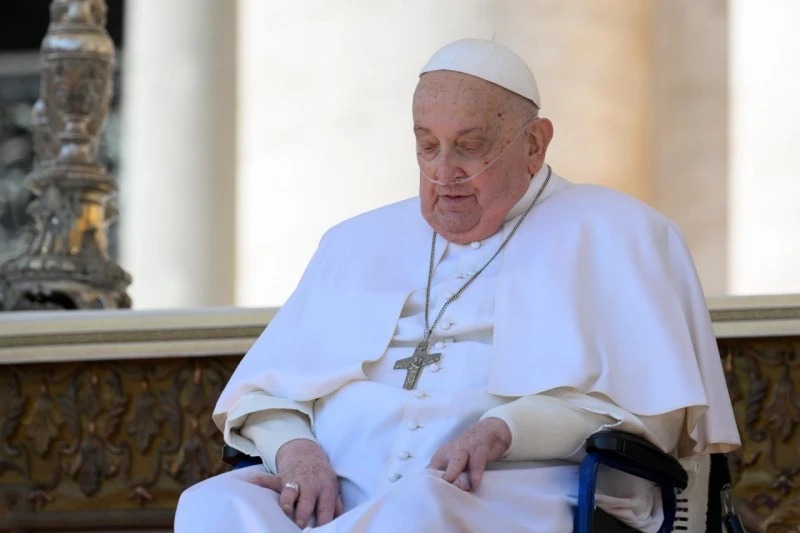
The Pope: In convalescence, I feel the “finger of God” and experience his loving caress
Exaudi Staff
06 April, 2025
2 min
 (EN)
(EN)
 (ES)
(ES)
 (IT)
(IT)

